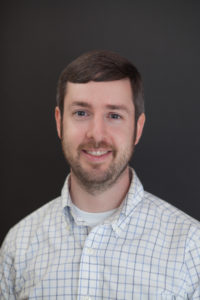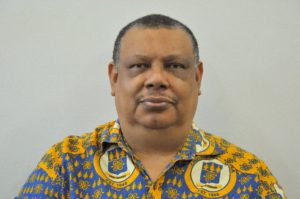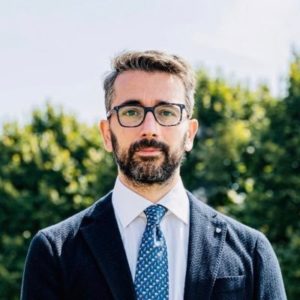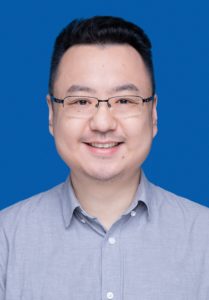 Dr. James Landon is the Founder & CTO of PowerTech Water, Inc. (PTW), a water treatment start-up company in Lexington, KY and an Adjunct Assistant Professor in the Department of Chemical Engineering at the University of Kentucky. Dr. Landon has spent over a decade on electrochemical water treatment, carbon electrode synthesis and surface chemistry, and electrochemical engineering including. Prior to transitioning to full-time employment at PTW in 2019, Dr. Landon was a Research Program Manager at the University of Kentucky Center for Applied Energy Research, where he lead or helped to lead many state and federal research projects. He has authored and co-authored over 50 peer-reviewed publications and patents filed in the field of electrochemical separations as well as numerous conference presentations. Dr. Landon received his BS in Chemical Engineering from Lehigh University in 2006 and a PhD in Chemical Engineering from Carnegie Mellon University in 2011.
Dr. James Landon is the Founder & CTO of PowerTech Water, Inc. (PTW), a water treatment start-up company in Lexington, KY and an Adjunct Assistant Professor in the Department of Chemical Engineering at the University of Kentucky. Dr. Landon has spent over a decade on electrochemical water treatment, carbon electrode synthesis and surface chemistry, and electrochemical engineering including. Prior to transitioning to full-time employment at PTW in 2019, Dr. Landon was a Research Program Manager at the University of Kentucky Center for Applied Energy Research, where he lead or helped to lead many state and federal research projects. He has authored and co-authored over 50 peer-reviewed publications and patents filed in the field of electrochemical separations as well as numerous conference presentations. Dr. Landon received his BS in Chemical Engineering from Lehigh University in 2006 and a PhD in Chemical Engineering from Carnegie Mellon University in 2011.
Read his Emerging Investigator article “Emerging investigator series: local pH effects on carbon oxidation in capacitive deionization architectures” and read more about him in the interview below:
Your recent Emerging Investigator Series paper focuses on Local pH Effects on Carbon Oxidation in Capacitive Deionization Architectures. How has your research evolved from your first article to this most recent article?
Initial research focused on the importance of carbon structure towards its desalination properties. However, it became evident early on that desalination with carbon electrodes depended on more than just the pore space and that surface properties of the electrode played one of the most critical roles. Since this realization, along with other exciting work completed in the field of capacitive deionization, manipulation of these surface properties allowed for the creation of an exciting new desalination technique, which was coined inverted capacitive deionization. Publications from Gao et al. and Omosebi et al. highlight the importance of these advances. In more recent years, the variance of carbon surface surface properties in relation to the bulk pH and the local pH has been used to further evaluate and advance capacitive deionization systems, which was the focus of this manuscript.
What aspect of your work are you most excited about at the moment?
I am most excited on how local pH effects can be used to perform more refined and selective salt separations. There is some exciting work being carried out by others in this area as well, and it could lead to more widespread adoption of capacitive deionization as a separation technique.
In your opinion, what are the most important questions to be asked/answered in this field of research?
Coordinating carbon electrode properties under various electrolyte conditions in order to perform specific separation processes is quite intriguing. Competing with membrane-based technologies to conduct general salt removal will be tough given currently available commercialized systems. If carbon surface characteristics can be used for designed separations that can be modulated under applied voltages, there could be some notable breakthroughs achieved in the field.
What do you find most challenging about your research?
The ability to achieve not only a separation but also achieve it reliably is quite important. This necessity means that longer experiments must be performed, and a multitude of characterization techniques must be carried out in addition to taking into account electrolyte compositions. All of these factors lead to needing a diverse research group to assess all of these factors. While this makes the research exciting, it also means that coordination and planning are needed to achieve reliable and impactful results.
In which upcoming conferences or events may our readers meet you?
Typically, you can find me at Electrochemical Society conferences as well as CDI&E conferences, which are held every other year.
How do you spend your spare time?
I truly like to reconnect with nature as much as I can in my spare time. Hiking, running, and playing tennis are all great activities to me. I find that spending time outdoors can help provide clarity in the ever increasing pace of the world.
Which profession would you choose if you were not a scientist?
Funny enough, I nearly pursued a career as a lawyer, specifically in the area of patent law. While I am certainly glad that I choose to pursue a career in science, the legal profession was next on my interest list.
Can you share one piece of career-related advice or wisdom with other early career scientists?
Keep your ears open. People can surprise you with their insights. Also, there is no substitute for hard work. It is discipline that keeps us all moving forward.














